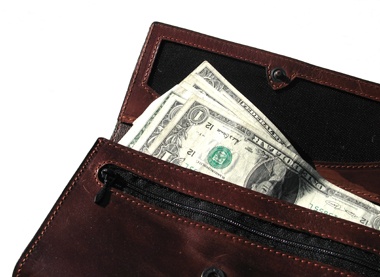1. Pay Down Debt
When in doubt on your finances, paying down debt is always a good option. The simple fact of the matter is that it’s easier to get more credit down the road if you pay off debt now. I realize that many financial gurus say that an emergency fund is the best place to start. Well, from my own experiences in a rough economy when interest rates can do all sorts of crazy things, paying down debt can be a better plan. If an emergency comes up, you may need to take on more debt to cover it — but you’ll be better equipped to handle it.
2. Polish Your Resume
Even if you aren’t in a field that’s currently experiencing a high rate of turnover, you should pull out your resume and polish it. If you’ve already got a good-looking resume in place, you’ve got a head start on all sorts of things: job-hunting, applying for a second job, freelancing and more. It may not be worth hiring a resume coach or other professional, but it’s definitely worthwhile to find a few examples of good resumes and compare yours.
3. Take a Close Look at Your Retirement Plan
401(k)s remain the popular retirement plan and, if you have one, it’s time to take a close look. The same goes for IRAs and any other assets you’ve purchased on your own. The market is very volatile now — it may be possible to pick up some impressive stocks on the cheap and it may be possible to watch the prices of the stocks in your 401(k) tumble downwards. As long as you aren’t retiring in the next few years, you can probably afford to ride this economic down turn out. The only stock-picking advice I can offer — and this applies to other assets as well — is that diversity is your friend. If your money is spread out, at least over a variety of stocks if not a variety of investment instruments, then a problem in a particular company or industry won’t wipe you out.
4. Buy Stuff Now
If you’ve got a big purchase coming up that you really do need to make, it’s better to make the purchase now rather than later. The U.S. dollar has already experienced significant inflation; it’s only going to get worse. That basically means your money is worth more now that it will be in a few months. You’ll get more bang for your buck if you can buy now. It’s a little counter-intuitive, I admit, and there are plenty of exceptions to this step. Shopping, however, can be good for your wallet in the long run. You get the added bonus of knowing that you’re improving the economy with every cent you spend.
5. Educate Yourself
I think we’ve all gotten a crash course in terms like ‘MBS’ lately, although we may not know exactly what they mean. It’s time to start seriously studying your personal finance vocab though, up to and including economic terms. The U.S. government offers plenty of free resources that are perfect for teaching yourself more about personal finance. You’ll have to custom fit your educational plan to your own finances: a really great starting point, I think, is reading through my latest bank statement and checking up on all the things I don’t understand, down to calling up and asking a teller about specific fees.
6. Invest in Your Future
If you’re having some trouble in the working world, now might be the perfect time to head back to school and get that degree you always wanted. You can get bigger loans with better terms to live on for a few years — hopefully getting you through the worst parts of our current economic problems before going back on the job market. Brushing up on your skills (and learning new ones) can also be the difference between making enough money to make it through economic problems comfortably and having to take a job for which you are overqualified. You don’t have to go all out and enlist back in school. In some cases, reading a book is more than enough effort to improve your career situation.
7. Ignore the News
The news media seems pretty much obsessed with each economic crisis, but you really can’t do much about the Dow Jones slipping or a bank failing. I recommend skipping the nightly news entirely, but muting just the business news might be enough. Some specialized news is, of course, worth paying attention to — if you’re invested in the stock market, it’s probably a good idea to read the stock reports. That’s really about it, though. Most of us have effectively no affect on any economic or business news: I know that even if I send a letter to my Congressman about the bailout package, I’m probably not going to affect his final decision. It’s just not worth paying attention to all that depressing news.
